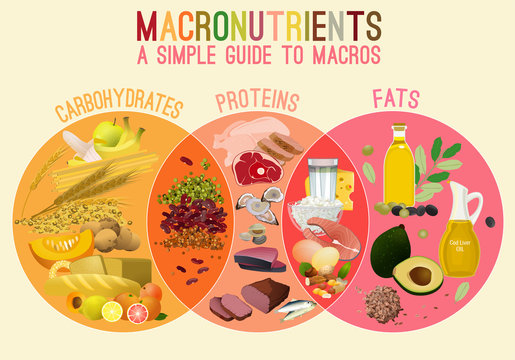Macronutrients are the primary nutrients that the body needs in larger quantities to function properly. There are three types of macronutrients:
Carbohydrates - Carbohydrates are the body's primary source of energy and are found in foods such as bread, pasta, rice, fruits, and vegetables.
Proteins - Proteins are essential for building and repairing tissues, and also play a role in hormone and enzyme production. Proteins can be found in foods such as meat, poultry, fish, dairy, beans, and nuts.
Fats - Fats are important for insulation, energy storage, and cushioning of vital organs. They also help absorb fat-soluble vitamins and minerals. Fats can be found in foods such as oils, butter, nuts, and fatty meats.
To ensure adequate intake of macronutrients, it is important to consume a balanced diet that includes a variety of nutrient-dense foods from each food group. A diet that is high in one macronutrient and low in others can lead to health problems.
For example, a diet that is high in carbohydrates and low in protein can result in muscle loss, while a diet that is high in fat and low in carbohydrates can result in decreased energy levels. To ensure that you are getting the right balance of macronutrients, it is recommended to speak with a healthcare provider or registered dietitian.
It is also important to consider portion control and calorie intake, as consuming too much of any macronutrient can lead to weight gain. A balanced diet, combined with regular physical activity, is key to maintaining good health and preventing chronic diseases.
